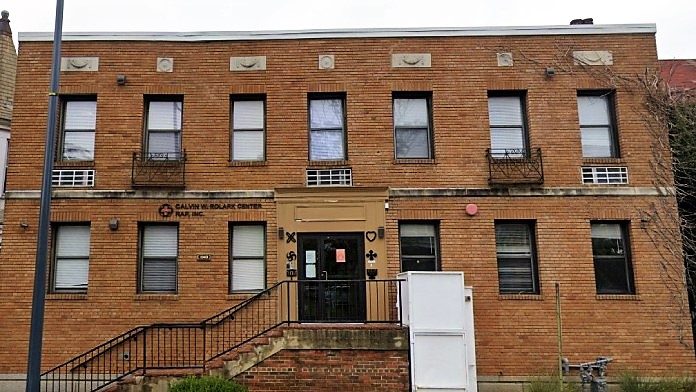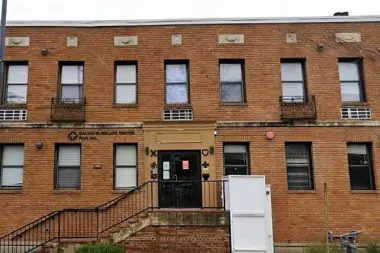About RAP Residential
RAP Residential in Washington, DC. is a Gaudenzia treatment facility for adults. For over 55 years, Gaudenzia has provided comprehensive programs for adults and families battling addiction, mental health conditions, homelessness and other life challenges. Whether you need 24/7 care or can live at home and attend treatment, they have an option for you. You’ll benefit from a customized treatment plan with your recovery goals at the forefront. You can participate in treatment best practices including assessments, medication assisted treatment (MAT) and individual, group and family counseling. These interventions can help you understand and change the underlying behaviors contributing to addiction.
Supporting Recovery Through Housing
What stands out most to me is their housing assistance programs. They provide affordable transition and long term housing for underserved populations. Along with housing assistance, you can access individual case management, employment services and legal advocacy. They strive to help you overcome life challenges and secure a safe home for overall wellness.
Diverse MAT Options for Your Situation
I also think it’s great that they have a wide variety of medication assisted treatment options. You can access induction and maintenance for FDA-medications to relieve withdrawal symptoms related to quitting substances. You may be prescribed naloxone, Vivitrol, or one of many forms of buprenorphine.
Empowering Safety with Harm Reduction
Additionally, I think their harm reduction services seem wonderful. They provide overdose prevention education, Narcan distribution, drug testing, drug checking strip distribution and peer support services. These services can help you learn how to protect yourself and help others in times of need.
Latest Reviews
Rehab Score
Gallery




Other Forms of Payment
Medicare is a federal program that provides health insurance for those 65 and older. It also serves people under 65 with chronic and disabling health challenges. To use Medicare for addiction treatment you need to find a program that accepts Medicare and is in network with your plan. Out of pocket costs and preauthorization requirements vary, so always check with your provider.
Medicaid is a state based program that helps lower-income individuals and families pay for healthcare. Medicaid covers addiction treatment so those enrolled can use their coverage to pay for rehab. When a program accepts Medicaid the client often pays very little or nothing out of their own pocket.
Financial aid can take many forms. Centers may have grants or scholarships available to clients who meet eligibility requirements. Programs that receive SAMHSA grants may have financial aid available for those who need treatment as well. Grants and scholarships can help you pai for treatment without having to repay.
Addiction Treatments
Levels of Care
Outpatient Programs (OP) are for those seeking mental rehab or drug rehab, but who also stay at home every night. The main difference between outpatient treatment (OP) and intensive outpatient treatment (IOP) lies in the amount of hours the patient spends at the facility. Most of the time an outpatient program is designed for someone who has completed an inpatient stay and is looking to continue their growth in recovery. Outpatient is not meant to be the starting point, it is commonly referred to as aftercare.
Residential treatment programs are those that offer housing and meals in addition to substance abuse treatment. Rehab facilities that offer residential treatment allow patients to focus solely on recovery, in an environment totally separate from their lives. Some rehab centers specialize in short-term residential treatment (a few days to a week or two), while others solely provide treatment on a long-term basis (several weeks to months). Some offer both, and tailor treatment to the patient's individual requirements. Linden Oaks' Residential Stay Program offers additional support for those who may benefit from a structured living environment. A patient's stay may vary from a few days to 30 days ago. The program includes group, family and individual counseling.
An intensive outpatient program (IOP) in Washington, DC is ideal for those who need a high level of care but also want to live at home while completing a recovery program. You'll attend several hours of treatment multiple days per week, then return home at night. The program may include group and individual counseling, holistic care, medication assisted treatment, and recovery education.
When family and friends are concerned about a loved one's substance use, they may seek intervention services to get their loved one the help they need. These services can include education about addiction, information about treatment options, and a professionally facilitated meeting where the individual is encouraged to seek treatment.
12 Step programs in Washington, DC offer free, peer-based support for individuals who want to break free from addiction. Following the program involves regular attendance at support group meetings, obtaining a sponsor who offers individual support, and working through the 12 Steps of recovery.
Programs
Adult rehab programs include therapies tailored to each client's specific needs, goals, and recovery progress. They are tailored to the specific challenges adult clients may face, including family and work pressures and commitments. From inpatient and residential treatment to various levels of outpatient services, there are many options available. Some facilities also help adults work through co-occurring conditions, like anxiety, that can accompany addiction.
Recovery is most successful when clients feel accepted and validated by their peers and treatment providers. Facilities that offer LGBTQ-inclusive programming are committed to creating a safe space where everyone can grow and recover without fear of judgment or discrimination. They will have dedicated policies in place to create a safe and supportive environment that fosters free expression.
Clinical Services
Common techniques used for cognitive behavioral therapy (CBT) in Washington DC include exposure therapy, role playing, and thought recording. These strategies allow participants to practice identifying, capturing, and changing thoughts, which leads to changed behavior.
Addiction often involves intense emotions. Dialectical behavior therapy (DBT) may be incorporated into rehab treatment to help clients manage those emotions. This therapy teaches skills to accept, regulate, and guide emotions to create healthier patterns of behavior.
Motivational interviewing in Washington, DC is a guided style of communication designed to empower you to change. It strikes a balance between listening and directing and features a respectful and curious tone that encourages you to change while respecting your autonomy.
During trauma therapy, you address the emotional and psychological effects of having witnessed or experienced traumatic events. Your therapist will guide you through confronting and integrating this trauma, which promotes emotional resilience and improves your overall quality of life.
Accreditations

State Licenses are permits issued by government agencies that allow rehab organizations to conduct business legally within a certain geographical area. Typically, the kind of program a rehab facility offers, along with its physical location, determines which licenses are required to operate legally.
State License: Washington, D.C.
Contact Information
1949 4th St NE
Washington, DC 20002